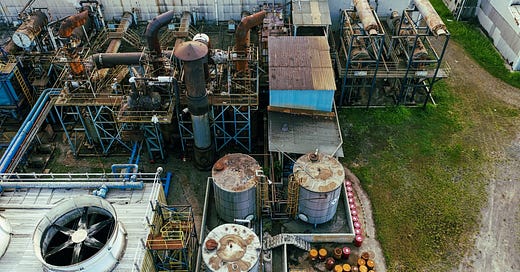University Search for Chemical Engineering in the UK | AHZ Associates
How does chemical engineering work?
Chemical engineering can be summed up as the science of transformation. Even though the field of chemical engineering has only been studied for about 125 years, during that time it has produced a vast array of now-standard procedures and goods.
Consider a world without technology, plastics, or fossil fuels, for instance. The world will be changed by you in real ways as a chemical engineer.
Chemical engineering will take you from the classroom to the lab to the real world of business and back again. It is a challenging but very rewarding subject.
Why Choose the UK to Study Chemical Engineering?
According to QS Ranking 2022, four UK universities that offer Chemical Engineering degrees are among the top 50 universities in the world.
25% of graduates in chemical engineering obtain jobs within six months of graduation. Engineering positions for products and processes are held by 21% of them.
According to the IChemE wage survey report, although the median pay for chemical engineers has somewhat fallen, the early career median salary has stayed stable at 30,000 pounds.
Chemical Engineering Entry Requirements in the UK
Admission requirements may be strict due to the high demand for degrees in Chemical Engineering. When it comes to subject matter, you'll probably need math, chemistry, and physics in your application.
You will benefit from learning further mathematics, statistics, design technology, product design, and engineering.
When writing your personal statement, consider the characteristics that make a good chemical engineer. Show off your propensity for research, experimenting, math, analysis, and practical inquiry.
Universities in the UK normally demand AAA for admission, with requirements varying from BBC to A*AA.
Scottish Highers—Highers, the most common degree in Scotland, with entry requirements ranging from BBBB to AAAAB, with AAABB serving as the most typical requirement for admission to UK universities. Sometimes Advanced Highers are required by universities in addition to Highers. When Advanced Highers are required by universities or colleges, AA is frequently requested.
Vocational Programmes - Some providers will accept additional Level 3/Level 6 credentials, such as the Pearson BTEC Level 3 National Extended Diploma or a SCQF Level 6, in place of A levels or Highers. It is crucial that you verify any additional admission requirements with universities or schools.
IELTS minimum score for English language proficiency is 6.5.
General requirements for MS in Chemical Engineering in the UK are often a bachelor's degree with a percentile score of 60-70 percent in Engineering, Chemistry, Physics, Mathematics, Life Sciences, or another pertinent area.
Courses in Chemical Engineering in the UK
Advanced Chemical Engineering Masters, MSc, or PGDip
Advanced Chemical Engineering with Healthcare Technology Masters/MSc/PGDip
Advanced Chemical Engineering with Bioprocessing Masters/MSc/PGDip
Advanced Chemical Engineering Formulation Masters/MSc/PGDip Advanced Chemical Engineering
Chemical Engineering Undergraduate with a BEng (Hons) Affiliate
Chemical Engineering BEng (Hons) with Foundation Year
Chemical Engineering BEng (Hons) with Industrial Study
BEng (Hons) Chemical and Petroleum Engineering with a foundation year and a professional training year MSc Chemical Process Engineering
Chemical Engineering with a BEng (Hons) and a year of professional training
Top Universities for chemical engineering in the UK
Scholarships for MS in Chemical Engineering in UK
Your finances may be strained if you pursue a master’s in the UK. But thankfully, there are several financial options available to overseas students in the UK.
The BLS estimates that between 2012 and 2022, employment of chemical engineers will increase by only 4%, which is less than the average for all occupations. The BLS states that "Demand for chemical engineers' services heavily depends on demand for various manufacturing businesses' products."
There should still be plenty of job opportunities for highly skilled applicants, especially those who have kept up with the most recent technological developments.



